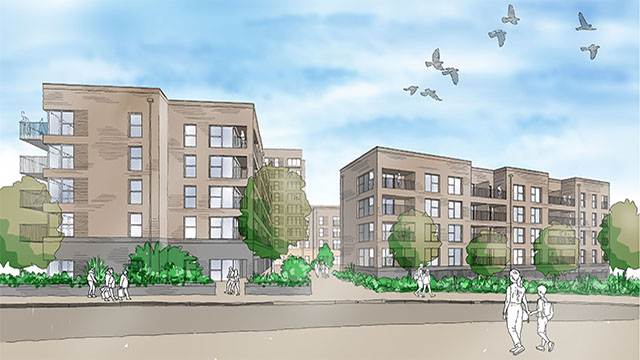Definitive map — Modification order — Public right of way shown over land — Evidence that map wrongly indicating right of way over claimants’ land — Council modifying map by deleting part of bridleway — Inspector refusing to confirm order — Whether inspector adopting correct approach — Whether inspector giving proper, adequate or intelligible reasons — Application dismissed
In August 2004, the county council made a definitive map modification order after they became aware of evidence that indicated that no public right of way existed over the land shown in the map and statement as a highway under section 53(3)(c)(iii) of the Wildlife and Countryside Act 1981.
The defendant’s inspector refused to confirm the order on the basis that, having considered the evidence, he was of the view that the proper procedures had been followed when the definitive map was compiled and that there was a presumption that bridleway rights existed over the land in question. Furthermore, the evidence put forward by the claimants did not support the contention that an error had been made when the route had first been recorded.
The claimants applied for a judicial review of that decision, contending that the inspector had failed to: (i) make a determination in accordance with section 53(3)(c)(iii); and (ii) give proper, adequate or intelligible reasons for his decision, which, in any event, was perverse.
Held: The application was dismissed.
The inspector had been entitled to reach his decision, in accordance with section 53(3)(c)(iii). He had adopted the correct approach, as indicated by the Court of Appeal in Trevelyan v Secretary of State for the Environment, Transport and the Regions [2001] EWCA Civ 266; [2001] 2 PLR 45.
The initial presumption that the disputed right of way existed and that it had been added to the definitive map, on the basis of reliable evidence and following the proper procedures had not been displaced or rebutted by any evidence to the contrary.
The inspector had properly considered the relevant available evidence in order to determine whether it had been shown that no rights existed over the disputed route. His consideration had included the evidence now produced by the claimants to show that the material upon which the decision to add the route to the definitive map was founded was unreliable for that purpose.
The claimants had not shown that the definitive map and statement had erroneously included, as a public right of way, the order route as part of a bridleway. Although the inspector could lawfully have decided the other way, it was open to him to come to the conclusion that he had. It was not a conclusion that could be characterised as perverse.
Timothy Mould (instructed by Birketts, of Ipswich) appeared for the claimants; Jonathan Karas (instructed by the legal department of Defra) appeared for the defendant.
Eileen O’Grady, barrister







